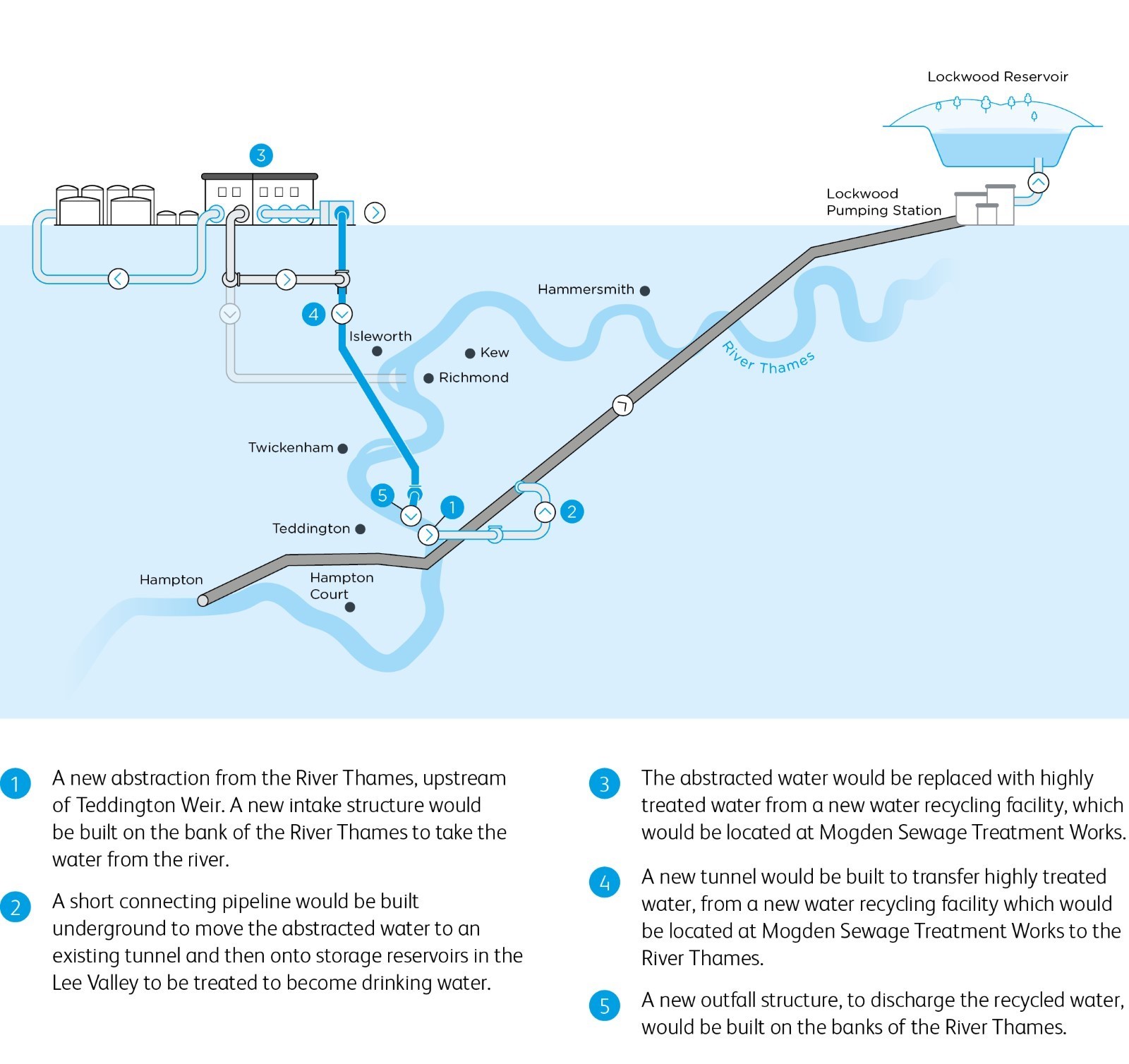The UK’s largest water and wastewater company has announced it will make further changes to its proposed London drought resilience project in response to feedback from customers.
The new infrastructure project is of national significance and would safeguard the drinking water supply to millions of households and businesses across London. Thames Water forecasts a shortfall of 1 billion litres of water per day by 2050 and it expects to be supplying an additional two million customers in London by that time, up from eight million to 10 million.
To address the water shortage, Thames Water is also planning record investment in new infrastructure and upgrades to its water network, alongside a commitment to more than halve leakage by 2050, and roll out a further 1.1 million smart meters to customers in the next five years.
The Teddington Direct River Abstraction (TDRA) project would only be used during periods of drought to protect drinking water supplies.

Water abstracted from the River Thames, upstream of Teddington Weir, would be transferred along a new connecting pipeline to an existing underground tunnel. It would then join the Lee Valley reservoirs in East London, ready to become drinking water.
To replenish the river, highly treated recycled water, which has gone through an additional cleaning stage known as ‘tertiary treatment’ would then be transferred from Mogden sewage treatment works and released into the River Thames at a new discharge location upstream of Teddington Weir. This would compensate for water taken to help protect the environment and local wildlife.
Strict rules, set by the Environment Agency, would govern its operation and the project is designed to ensure there would be no untreated sewage transferred into the river.
If approved, the project could provide up to 75 million litres of water each day, sparing London’s economy from the effects of a severe drought which could cost as much as £500 million a day.
Design changes and feedback
Over 2,300 people responded to Thames Water’s non-statutory public consultation in autumn 2023. To address the public’s most pressing concerns about surface level impacts in Hounslow, Richmond and Kingston, the company announced in July 2024 that it would change the proposed construction method for its new recycled water pipeline.
The move from pipejacking to tunnel boring significantly reduces visual impacts, as four ventilation shafts and construction compounds are removed from the project design. This also reduces the number of traffic movements that would have been associated with the original shaft and associated compound sites.
As it continues to act on feedback, Thames Water has today set out a solution that would remove the need to continually discharge treated water upstream of Teddington Weir. It would instead discharge the maintenance flow, which keeps the water recycling process in good working order, at Isleworth, using existing infrastructure. As a result of this change, treated water would only be discharged upstream of Teddington Weir when the TDRA project is in operation – on average, once every two years.
Leonie Dubois, Head of Engagement, Land and Consents at Thames Water said:
“We take feedback from communities extremely seriously and are focused on ensuring our design proposals deliver improvements every step of the way.
“We have a long way to go before we reach final design stage, and there will be further opportunities for people to have their say and help shape our proposals. I hope local communities feel reassured that we are listening and acting on their feedback. Minimising impacts and disruption where we can, while protecting future water resources, is our absolute priority.”



